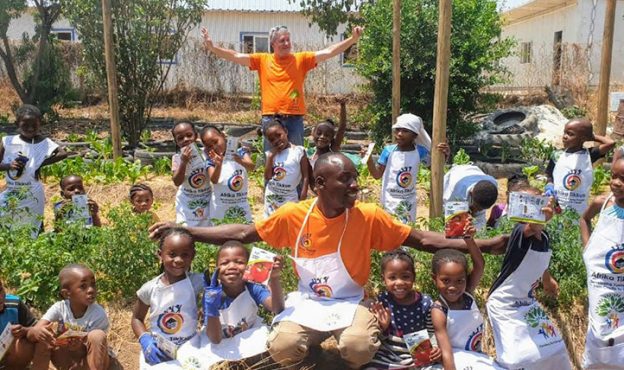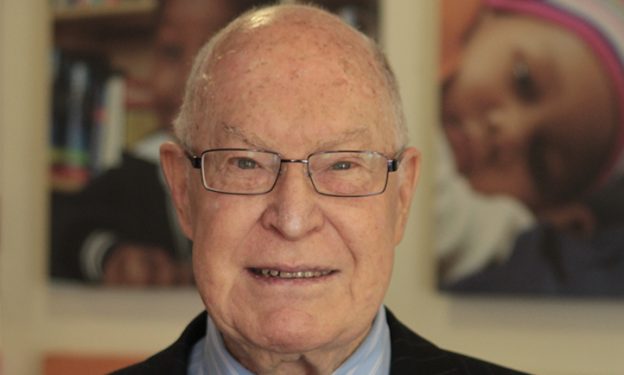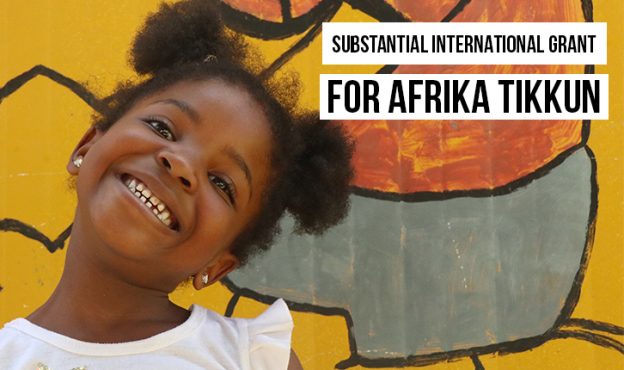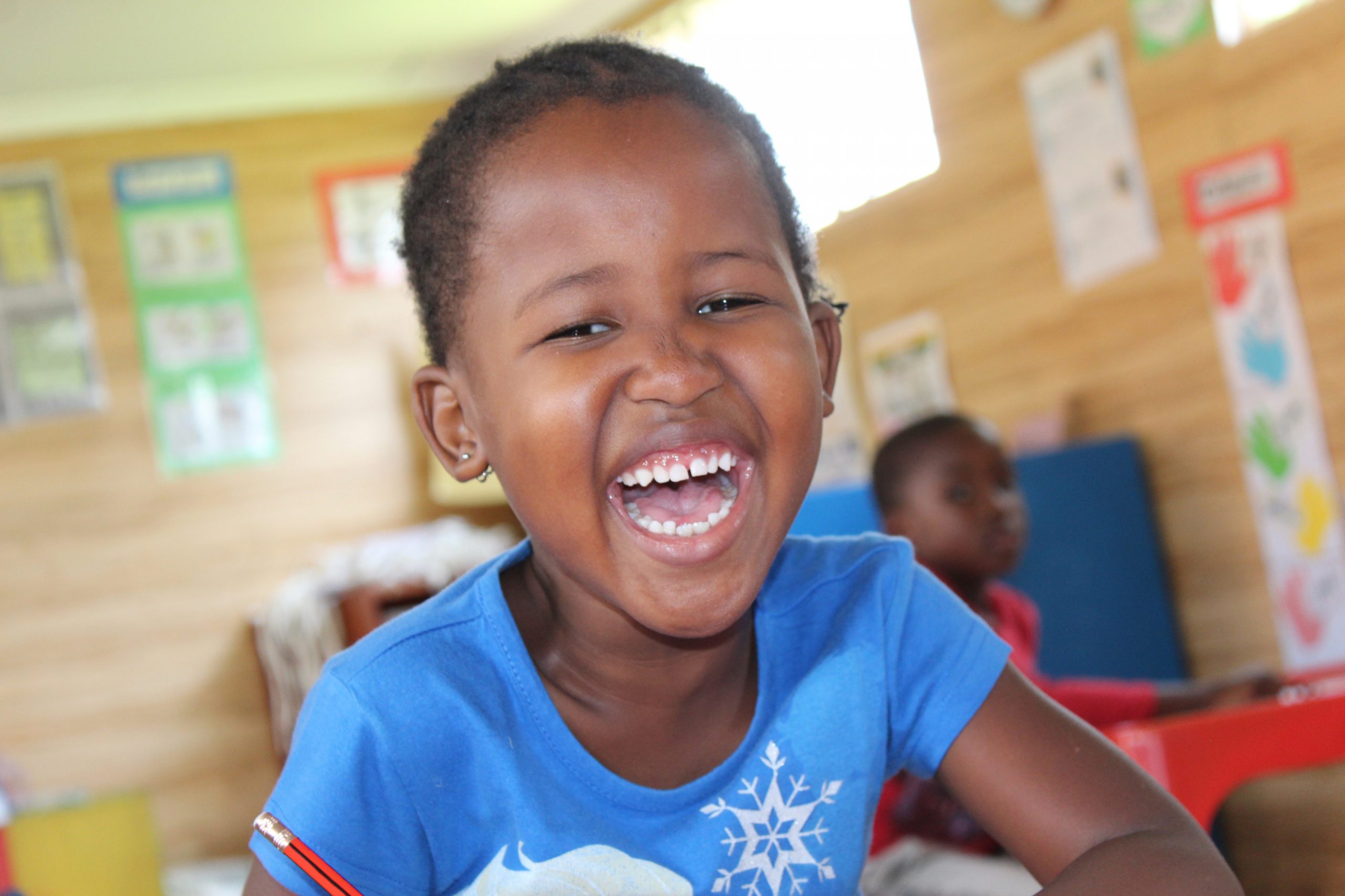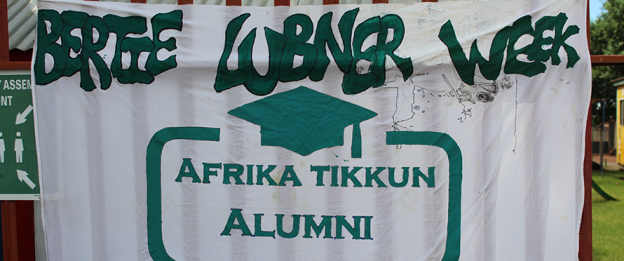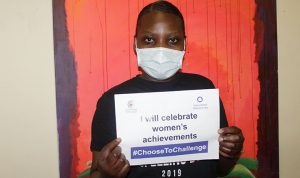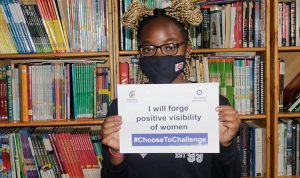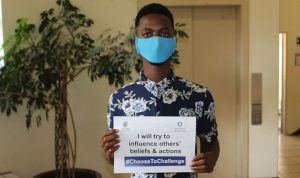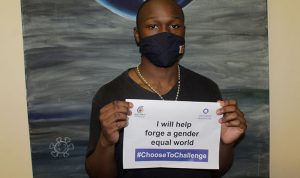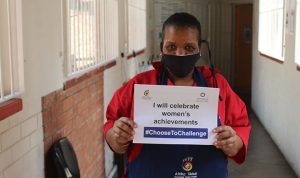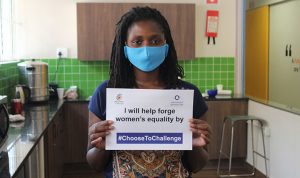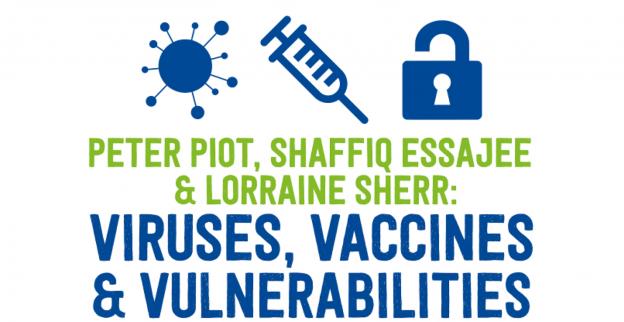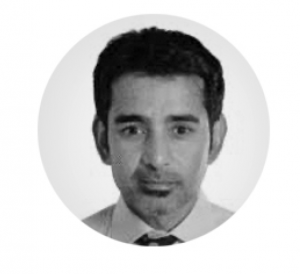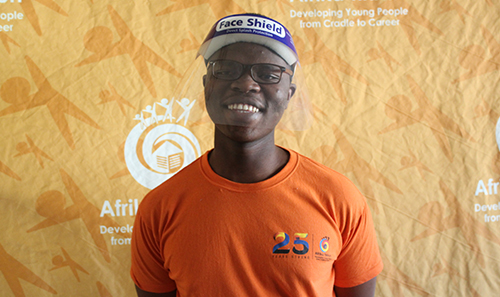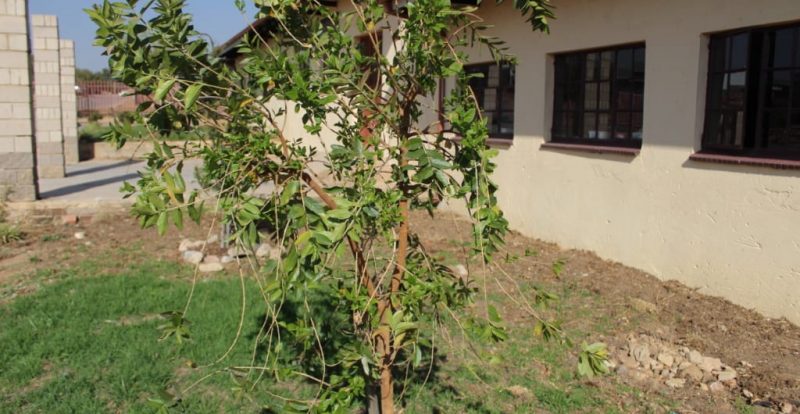In support of
Afrika Tikkun’s Garden to Kindergarten Programme
To celebrate his 60th birthday, Steve would like to invite you to join him in reaching the target of $10 000 AUD / £5 400 / ZAR 107 000 to support Afrika Tikkun’s Garden to Kindergarten programme in Orange Farm for a whole year and continue Sandi’s legacy.
Click Here to Support This Fundraiser
In 2018, Steve Jacobson and his sister Val Mardon worked with Afrika Tikkun to set up the Garden to Kindergarten project in memory of their late sister, Sandi Jacobson, aka Millie Khumalo.
The idea was to craft a programme that would improve the lives and prospects of South African children and at the same time honour Sandi’s primary passions; growing vegetables in combination with growing young minds and bodies.
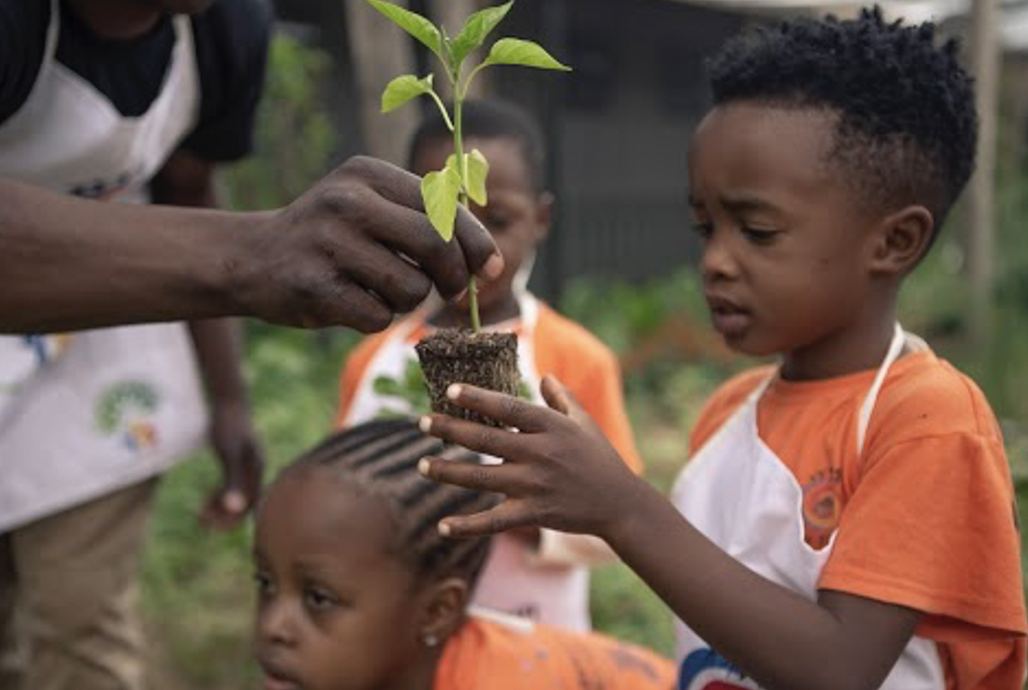
The programme, which originally started in Orange Farm – where the vegetable garden bears Sandi’s name – is now running across all five of Afrika Tikkun’s centres in Diepsloot, Orange Farm, Braamfontein, Alexandra and Mfuleni. Each centre has a flourishing garden in which the programme takes place. These gardens are spaces of learning but also produce a large portion of the fresh produce that is used to make daily meals for the children, young people and staff at Afrika Tikkun’s centres.
The programme teaches children, ages 5-to-6, about the art of growing vegetables, the value of fresh organically grown nutrition, food security, food sovereignty and the wonder of growing food from seed.
Given the current context of food insecurity, made even worse by the covid-19 pandemic, this programme is incredibly important and Afrika Tikkun is looking to extend its reach to more children.
